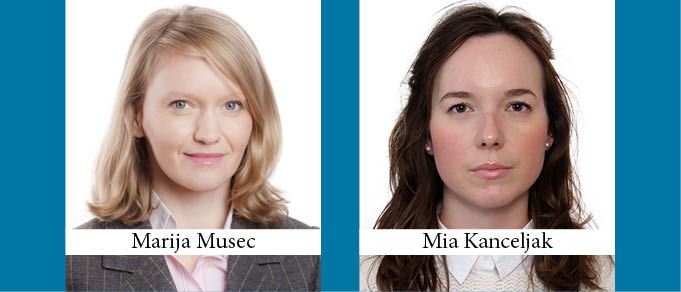Croatia stands among the highest ranked countries when it comes to the compliance of its PPP legislative framework with international standards. Reports issued by international institutions such as the EBRD and the EIB have praised Croatia for its elaborate legal framework, strong institutional capacities, transparent procurement practices, easy access to justice (including arbitration), and a range of security instruments facilitating financing.
PPP legislation, implemented in 2014, is well-established and tested in practice. Selection of a private partner is governed by the public procurement legislation (adopted in January 2017), which implements the Public Procurement Directive 2014/24/EC. The concessions sector, which was considered underdeveloped compared to PPPs, has been improved by the (new) 2017 Concessions Act.
Croatia seems to be advanced in a number of factors investors typically look at before making a PPP investment. The selection of the private party is made in a fair and transparent process. There are only limited exemptions allowing for direct negotiations, and the law provides clear rules on the choice of tender. Tenders are open to all candidates. Quick and effective legal remedies against decisions of the contracting authority made during the selection process provide protection for investors while minimizing delays in the award process.
The “bankability” of a project crucially relies on the availability of reliable security instruments relating to rights and assets of the private partner in the project and other instruments to contractually secure the cash-flow of the private party in favor of lenders. To stabilize a private partner (project company) in economic turbulence, “direct agreements” and “step-in rights” (without tender) are allowed; further, the possibility of government financial support or a guarantee of the contracting authority’s proper fulfillment of its obligations significantly reduces project finance risks.
A project may be awarded only after an economic feasibility study ascertains viability and financial sustainability over the whole life of the contract as well as the likely socio-economic benefits and environmental impact of the project.
However, while the market seems mature, and legislation seems advanced, there is still no significant take-off.
Currently 15 PPPs have been contracted in Croatia, for a total value of HRK 2,540,265,929.00. If the Istrian Ypsilon project (1995) and the Zagreb Airport project (2013) are subtracted from the list, Croatia’s transaction record would come down to a limited number of small projects in social infrastructure. And no significant new project has taken place since January 2014.
Luka Gruz, a long awaited concession PPP project in the Dubrovnik area, has been presigned under a preliminary concession contract but the negotiations between the investor and the Management Council of the Dubrovnik Port Administration failed, and the preliminary concession contract expired in July 2016.
Why there is no significant transaction record?
Effective implementation of laws is a challenge in many countries, and Croatia seems not to be an exception. The country seems to be missing a firm commitment to develop PPPs., as here is no real PPP policy in the country and no single (uniform) project pipeline endorsed by the government.
The public perceives PPP as an expensive model with no clear benefits. Value for Money (VfM) criteria are not well understood. The public often has limited knowledge about the benefits and advantages of PPPs which in turn leads to resistance. PPPs
are often perceived by the public as an “expensive” model which favors private partners and functions as a means to hide the privatization of public wealth and services. This is especially the case in Croatia, where they have been associated in the past with corruption and negative experiences in the form of projects failures or badly managed projects.
Financial institutions often voice concerns about project documentation that is not reliable and unprofessionally prepared. Funding of proper (professionally prepared) project documentation and establishing a project preparation fund seems crucial.
Croatia has the potential to develop PPPs significantly in the next ten years. However, the benefits of PPPs and concessions should be promoted, and both public and public servants should be educated on the main features of PPPs and concessions. This would contribute to the better reputation of PPPs and concessions and address concerns associated with these models.
It is expected that Croatia will start to direct EU structural funds towards PPPs, primarily by developing model documents in the following priority sectors: (i) public lighting, (ii) public building, and (iii) broadband.
By Marija Musec, Partner, and Mia Kanceljak, Senior Associate, CMS
This Article was originally published in Issue 5.3 of the CEE Legal Matters Magazine. If you would like to receive a hard copy of the magazine, you can subscribe here.
















